TRADITION
Founder’s Letter
— Social Responsibility
TECHNOLOGY
Supply Chain
Production
Quality
Founder’s Letter
— Social Responsibility
Supply Chain
Production
Quality
Our passion for creating the highest quality product goes hand in hand with BALSU’s principles of social responsibility. We have a set of guidelines embedded in our company DNA that represent our dedication to the people we serve and work with, the communities in which we operate and to the planet to which we belong.
Giving social responsibilities precedence over financial goals, BALSU is committed to fulfilling all of its duties by offering the clients products of the highest quality and freshness. Meanwhile it is ensured that raw materials are responsibly sourced and the environmental impact is minimized through innovative and good agricultural practices. Furthermore, local communities are developed through numerous projects undertaken in collaboration with the relevant ministries, local and international NGOs, universities and other stakeholders.
BALSU takes a multi-sided approach to driving sustainability in the supply chain by promoting social, economic and environmental sustainability, product traceability, and occupational health and safety measures. We are committed to working with suppliers that support our principles of social responsibility through continuous improvement.
In accordance with our mission to develop local villages socially, economically and culturally, we initiate various training programs for farmers. We provide education on good agricultural practices to sustainably increase yield, quality and income, and encourage ethical recruitment processes in the field level.
With the conviction that every child should be protected from any form of exploitation, our Founder have established “Genç Hayat Foundation” in 2008 to tackle the root causes of child labour in Turkey. Through the foundation’s “In A Nutshell” project we opened summer schools that improve children academically, as well as socially to prevent them from working in hazelnut gardens. Keeping in mind that 1 out of every 2 child workers drops out of school completely, we provide the children in our project with financial aid for each school year whilst tracking their attendance in order to maintain their academic development. We also provide them food, school supplies, and hygienic product aid packages.
We support the abolition of the exploitation of child labour, forced labour and coercive labour throughout our entire production chain. We do this through legal means, close ties with local communities and regular monitoring of suppliers, aiming to act as a sustainable development engine for these local communities.
While addressing systemic issues like child labour that requires a multi-stakeholder approach, we partner with the government, the industry, our clients, NGOs and academia; we develop supply chain trainings; promote community capacity building and investment in order to:
– Protect human and children rights
– Sustainably increase crop and yield
– Preserve the environment
We go beyond monitoring workers’ rights and working conditions in supply chains to meet their human rights obligations. We make a difference in the lives of workers and farmers, and their families by actively seeking out and implementing the solutions that work best.
Since 2010, we have been supporting hazelnut farmers and seasonal workers, and improving conditions in the hazelnut supply chain in line with our commitment to creating the highest standards for the people we work with and the communities we operate. Our project titled “Improvement of Living and Working Conditions of Seasonal Agriculture Workers and Prevention of Child Labour” has been awarded the Jury’s Special Award at the Corporate Social Responsibility Award Ceremony organized by the Turkish Employers’ Union in 2019.
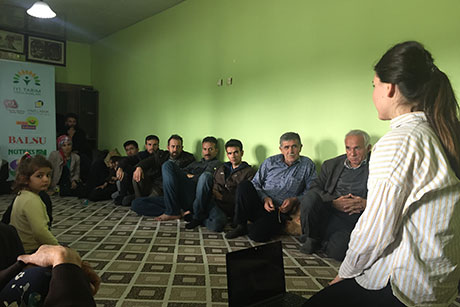
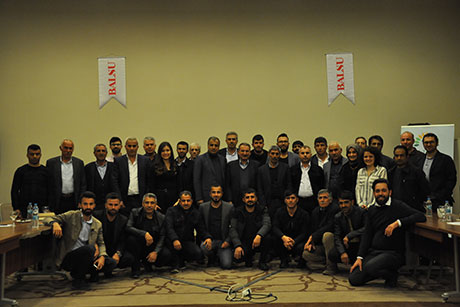
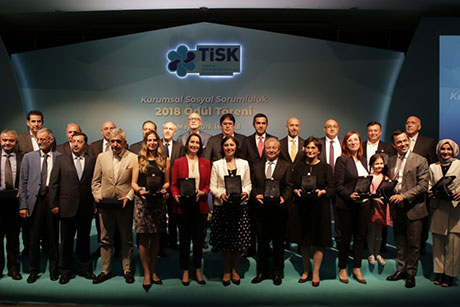
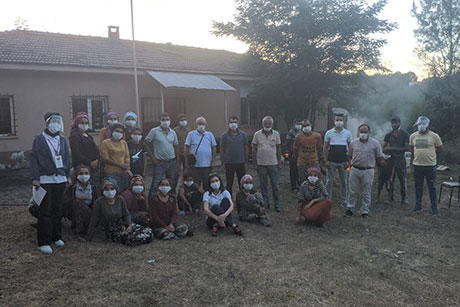
We open summer schools in hazelnut sourcing villages for children between 5-15 ages in cooperation with the Genç Hayat Foundation. According to the social impact assessment conducted by Fair Labor Association in 2018, we have achieved both an increase in the number of children attending summer schools since their establishment in 2014 and a downward trend in the number of children working in the hazelnut gardens.
The children of seasonal agricultural workers often suffer academically, especially during the busy harvest season. Summer schools fill a gap by providing a safe environment where children are supervised and their basic needs are covered while family members work in the hazelnut gardens. We have also developed incentives (scholarship programs, activities in accordance to their age etc.) to attract and secure the attendance of children within the risk group (ages 13-15 ).
Moreover, we have been working with International Labour Organization since 2018 to benefit from various project models and diversify our use of resources.
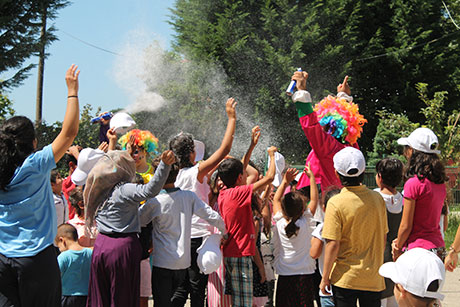

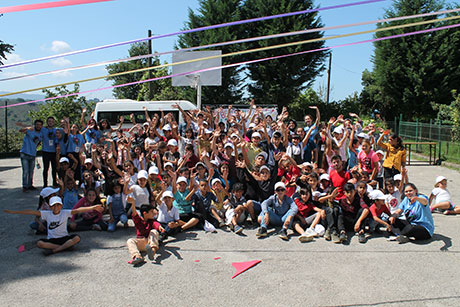
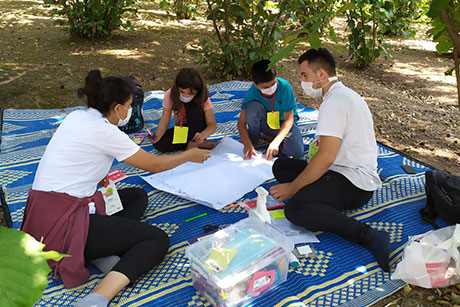
BALSU’s Strong Women, Strong Agriculture program occupies a unique place among our initiatives. We have aimed to reach more women to combat child labour with this project.
The training programs in the project are promoting the well-being of the local community, as well as contributing to social compliance topics. It has been demonstrated that female farmers, who are empowered in economic and social life, become leaders for sustainable development and are representatives of change. We are committed to expand the project within different regions in cooperation with relevant stakeholders.
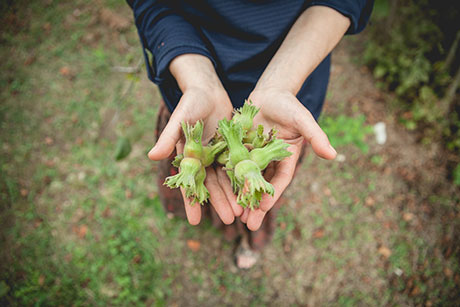
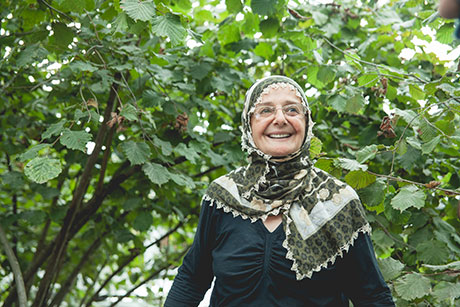
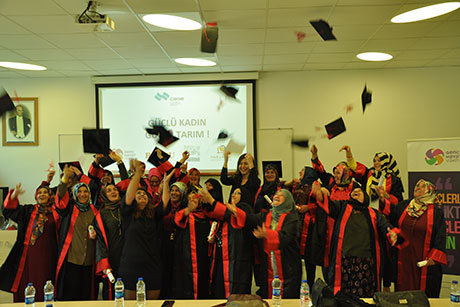
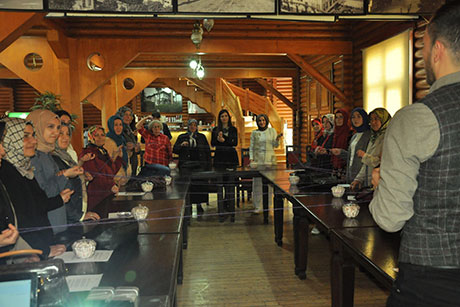
We are happy to share our experiences and program details transparently with all the stakeholders. We believe that systemic sectoral reforms can only be achieved through working together.
We aim to contribute responsible sourcing activities of hazelnuts in the Black Sea region through engagement with multi-stakeholders. Protocols have been initiated with universities, hazelnut exporters associations, local governments, municipalities and the chamber of commerce.
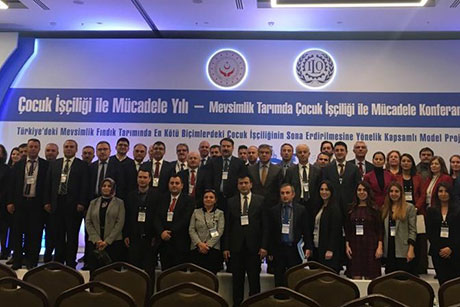
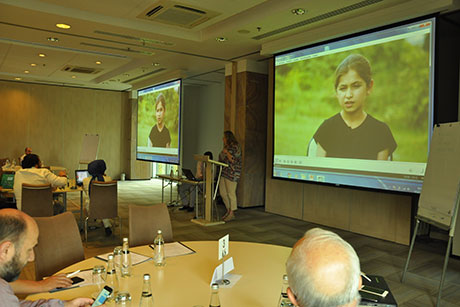
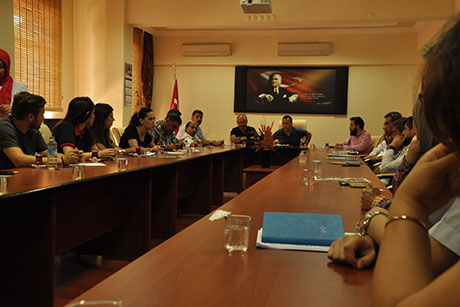
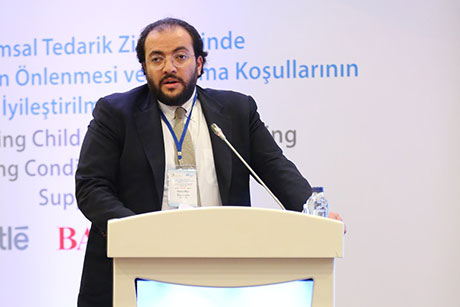
We support farmers to improve farming practices for conserving natural ecosystems, improve climate adaptation and resilience.
Hazelnuts are strongly affected by climate change and although the carbon footprint of the hazelnut production is low, it can still give way to environmental problems. Farmers are provided with best training to increase the yield and quality, reduce pollution to the environment, and increase biodiversity.
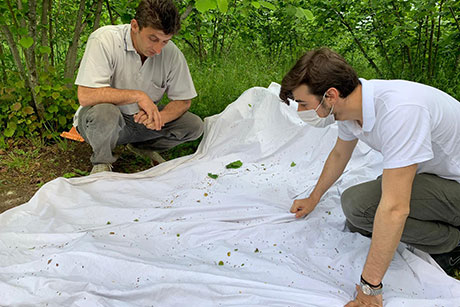
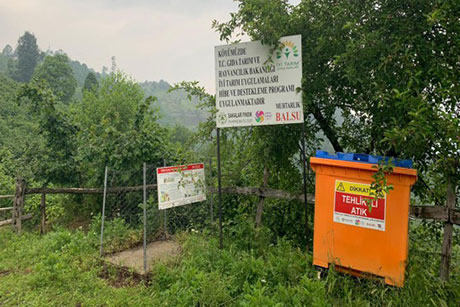
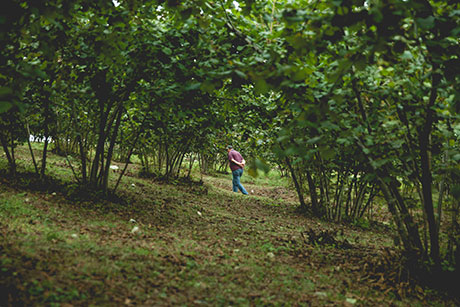
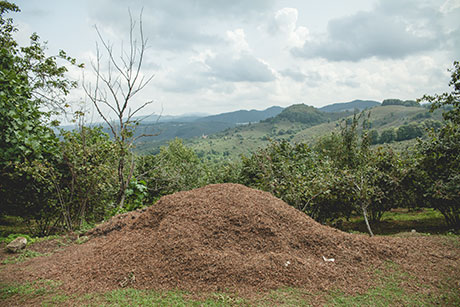
BALSU’s agricultural engineers and social experts work with passion to improve the working and living conditions of the hazelnut workers and the agricultural practices of the farmers.
Through practical training sessions on the field (e.g. show pruning or impact of GAP) we provide assistance for individual needs and increase the adoption rates of farmers. Model farms are encouraged in order to show the farmers the effect of the application of good agricultural and environmental practices and integrated pest management. We encourage farmers to implement agricultural practices in a scientific manner and use data analysis in order to reduce input costs and increase the yield and quality of the products.
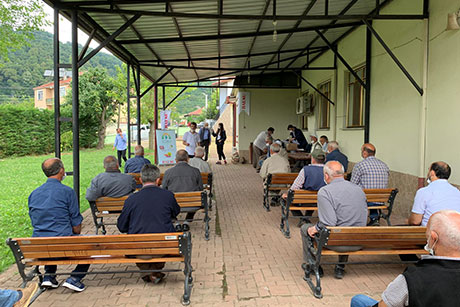
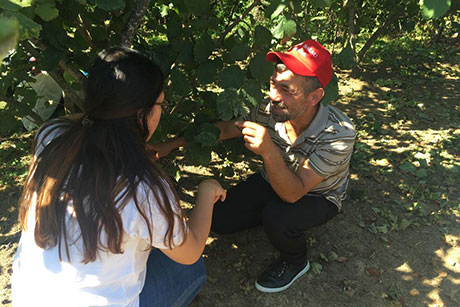
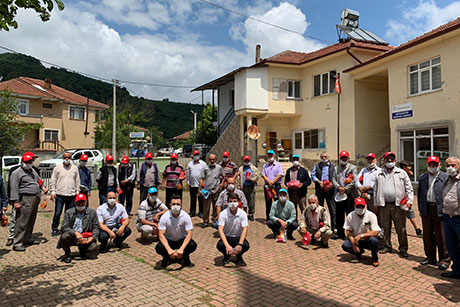
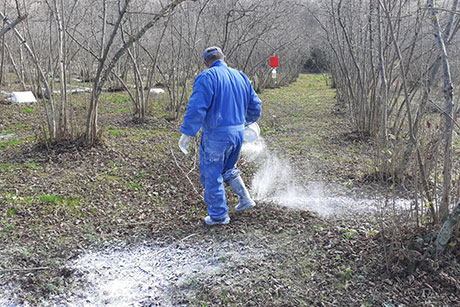
At BALSU we have set up meteorological stations that measure the parameters such as temperature, humidity, wind, rainfall, leaf and soil moisture in “model gardens.”
These stations, which enable farmers to make informed decisions about crops and field activities, will be strengthened with a software program to activate early warning systems.
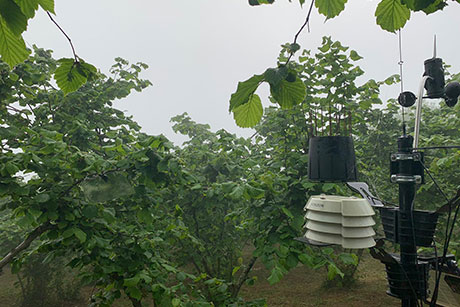
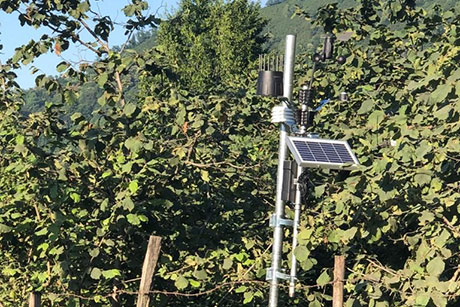
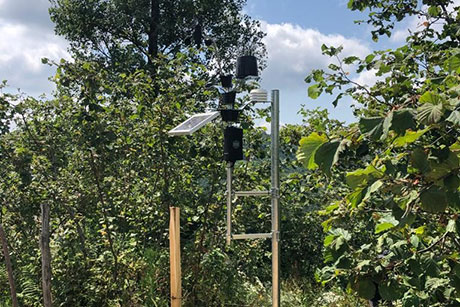
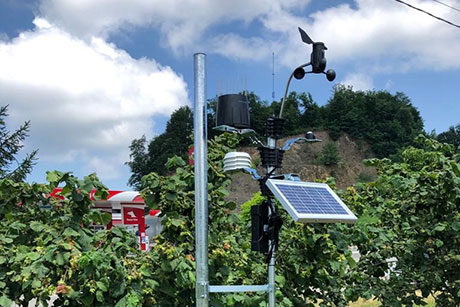
We have been offering farmers, workers and families the best information and training about occupational health & safety since 2014. Personal protective equipment, hygiene kits and first aid kits are also regularly being distributed.
Our progress goals include; transportation of seasonal agricultural workers, struggle against chemical wastes in villages, implementation of BALSU’s OHS procedures in hazelnuts farms, access to clean water, conformity of OHS standards to accommodation areas of workers.
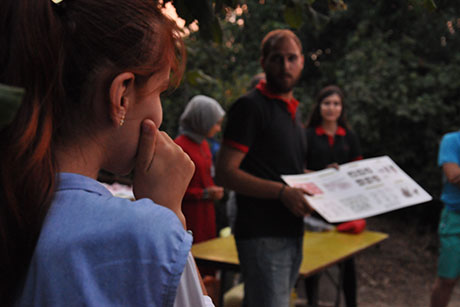
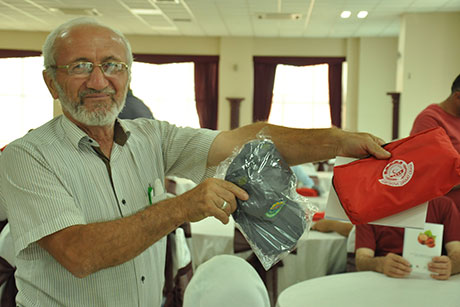
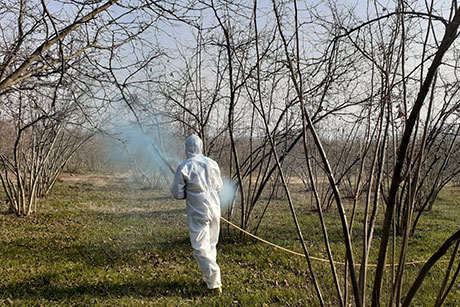
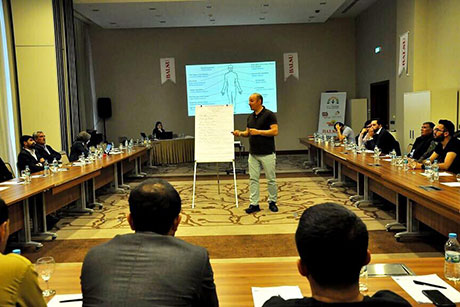
All purchased materials are categorically identified. For each production line a product recipe is prepared in accordance with the traceability reference number initially identified.
We employ end-to-end traceability; from raw materials to finished goods and from finished goods to raw materials.
Hazelnut deliveries are traceable back to the farm level with certified farmers. Balsu collects farmer baseline information and keeps record of the data (farmer’s name, contact number, estimated production, address, GPS data, production information on input use, calibration, yield and quality measurements, harvest profile, workers’ information). which enables to enrich our improvement programs on the field.

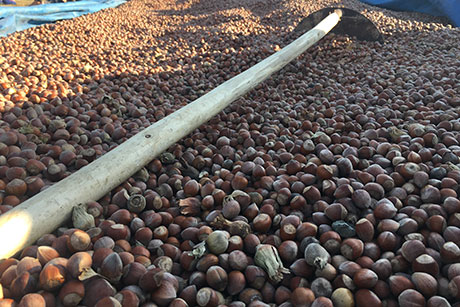
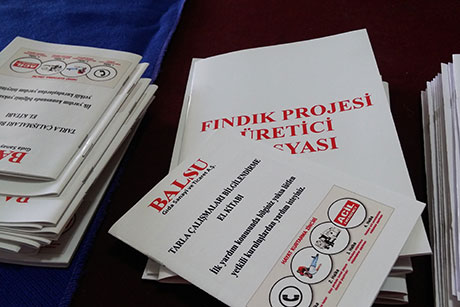
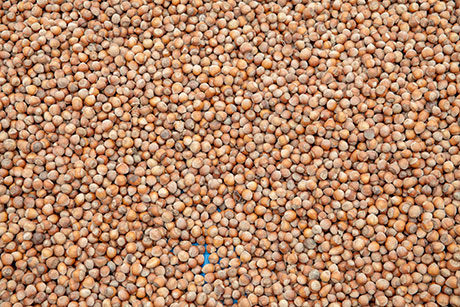
We are improving our internal management programs and remediation interventions depending on continuous assessments made within sustainability projects.
BALSU is a Rainforest member since 2014. Every Rainforest certified product is grown in accordance with the Code of Conduct, which sets guidelines for better farming methods and working conditions, as well as better care for nature and for future generations. To ensure compliance with the Code, all producers are subjected to a regular check by independent auditors. Upon approval farmers are granted a certification, which means they can sell their products as Rainforest certified, and all sales are recorded in the Rainforest certified traceability systems. The Code of Conduct is based on a model of continuous improvement. From year one, the hazelnut farmers have to fulfil core criteria concerning safety, farm management and record keeping, employees and environmental protection.
BALSU is affiliated with the Fair Labour Association since 2013. As being an affiliated supplier in the FLA’s program, we believe that all goods should be produced fairly, ethically and industries should find sustainable solutions to systemic labour issues. Since 1999, FLA has helped improve workers’ lives by holding affiliated companies accountable for implementing FLA’s Code of Conduct across their supply chains. We conduct annual third party internal and external assessments as part of the FLA affiliation program, so that our customers can be assured of the integrity of the products they buy.
We certify farmers under the Turkish Good Agriculture Practices standards and requirements in terms of hazelnut safety, quality, environmental management and workers’ health and safety with the Turkish GAP certification provided by the Ministry of Agriculture and Forest since 2016. Good Agricultural Practices are a form of agricultural production aimed at manufacturing an environment, human and animal health friendly agricultural product. The product must also adhere to the protection of natural resources, traceability in agriculture, sustainability and food safety regulations. Within this certification scheme, farmers receive state supported grants per decare.
Copyright © BALSU 2021. All rights reserved.